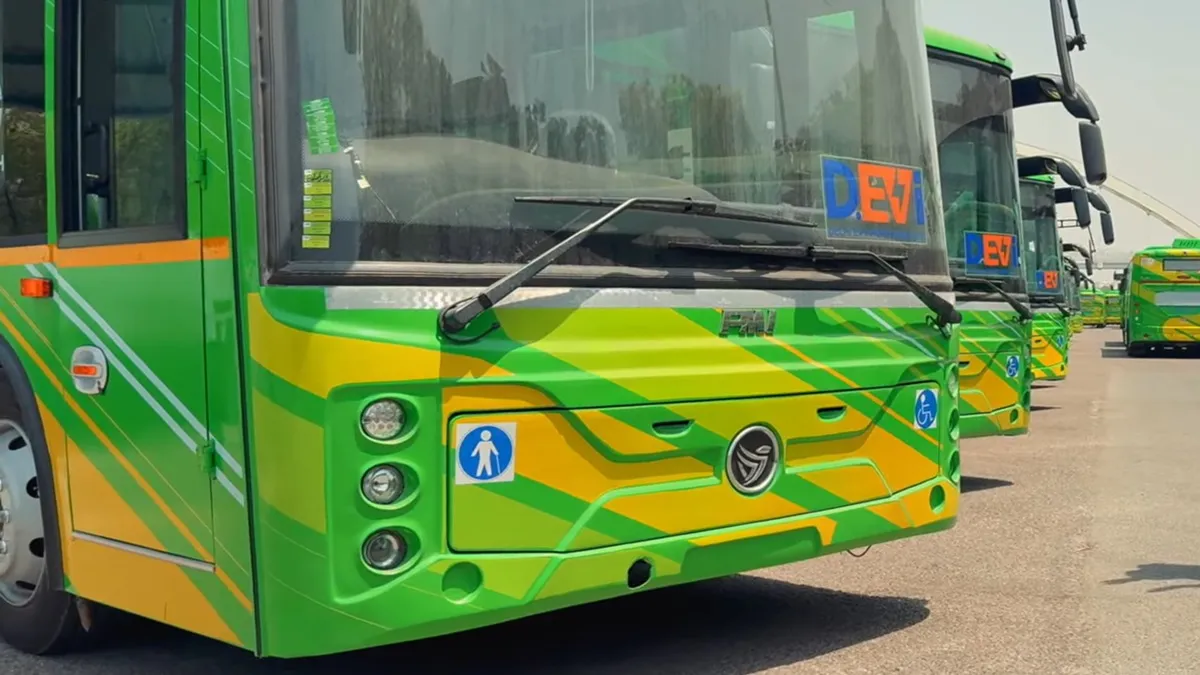- By Arjit Garg
- Wed, 21 May 2025 04:29 PM (IST)
- Source:JND
India’s shift toward electric mobility in public transport has gained steady momentum, with electric buses becoming increasingly common across both metropolitan and tier-2 and tier-3 cities. This visible transition reflects the country’s broader commitment to sustainable urban development, anchored by national and state-level policies that promote cleaner alternatives to conventional public transport.
As this shift deepens, the conversation has moved beyond vehicle deployment to the systems needed to support them. The expansion of reliable charging infrastructure and improvements in grid capacity are now central to ensuring that electric bus fleets can operate efficiently, consistently, and at scale. These developments reflect a long-term vision to create a resilient, accessible, and environmentally responsible public transport network.
Also read: Top 5 SUVs Under Rs 10 Lakh With A Sunroof; Tata Nexon To Hyundai Venue
Building the Infrastructure Backbone
Government initiatives like the PM e-Bus Sewa Scheme (2023), PM E-Drive Scheme (2024) and PM-eBus Sewa Payment Security Mechanism (PSM) are playing a significant role in accelerating this transition.
Through mechanisms such as Viability Gap Funding, these schemes are enabling the electrification of depots and the installation of high-capacity charging infrastructure. Cities including Bengaluru, Hyderabad, and Pune have begun to integrate dedicated charging systems tailored to the needs of large electric fleets.
These urban initiatives are expected to gradually expand into smaller towns, widening the reach of zero-emission mobility. Public-private collaborations are helping to build out charging networks, contributing to infrastructure reliability and operational scalability.
Strengthening the Power Grid
One of the most critical aspects of supporting electric public transport is ensuring the power grid can meet new demands. Investments in modernising substations, transformers, and distribution lines are vital to keep pace with the energy needs of expanding electric bus networks.
Innovative approaches, such as Time-of-Day tariffs to better manage load patterns and prevent grid stress during peak charging hours. Battery Energy Storage Systems (BESS) to store power and ease demand during high-usage periods. These steps are helping cities build charging ecosystems that are both safe and adaptive, aligned with broader energy transition goals.
Practical Innovation in Electric Bus Operations
Urban transport authorities are also experimenting with flexible charging strategies to optimise bus operations. Opportunity charging, where buses recharge during scheduled halts, is already being piloted in Pune and Hyderabad, ensuring routes run smoothly without long charging interruptions. Depots powered by renewable energy are emerging as another practical solution.
When integrated with battery storage systems, they offer cleaner and more self-sufficient alternatives to grid-reliant charging setups. These developments reflect a clear effort to balance operational needs with environmental goals.
Looking Ahead
India is undergoing a transformative shift towards electric mobility and with the aforementioned initiatives is setting the stage for a cleaner and brighter future. These policies provide the necessary support to unite both public and private sectors, working together to build the infrastructure needed for a new era of zero-emission transportation.
The change is happening, and it’s happening fast. Cities across India are adopting cleaner technologies, and as smarter, more efficient charging systems become common, the shift toward sustainable urban mobility is becoming a reality. With every electric bus that hits the road, we are not only reducing emissions but also embracing a future that is healthier, more inclusive, and more thoughtful.
This movement is about people. It’s about giving future generations cleaner air, better health, and a higher quality of life. As the infrastructure expands and electric bus fleets grow, India is creating a future focused on efficiency, sustainability, and the well-being of its citizens.
Now is the time to act. The systems being developed today will shape a future where cities are cleaner, transportation is more sustainable, and our planet is better cared for. Together, we can drive change that will redefine urban mobility for generations.
Disclaimer: This article is authoted by Dr. Aanchal Jain, CEO of PMI Electro Mobility. All views are personal.

